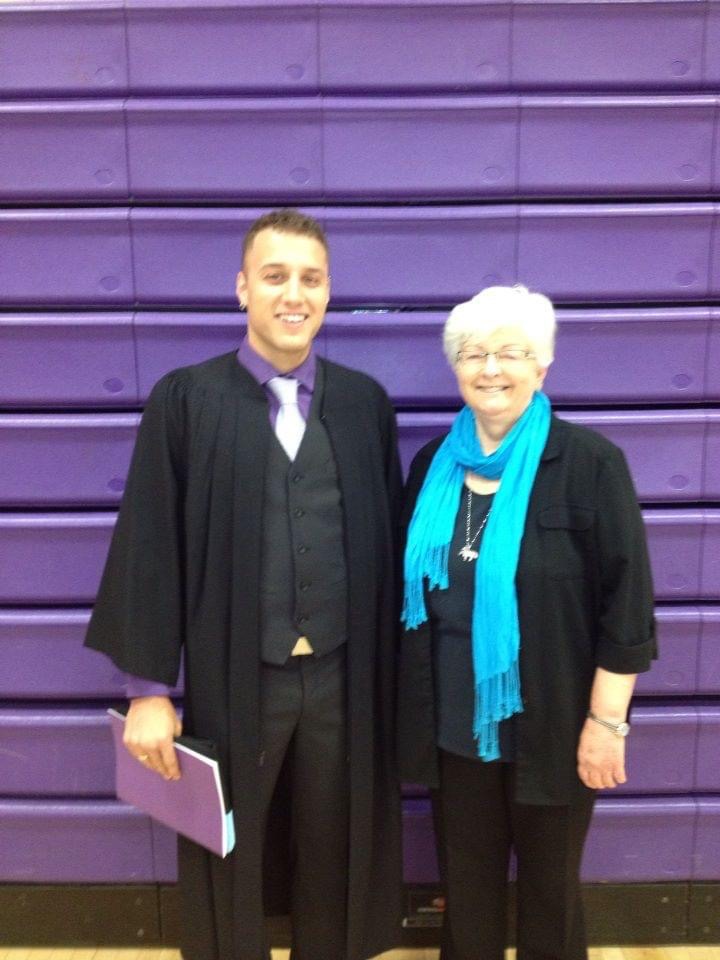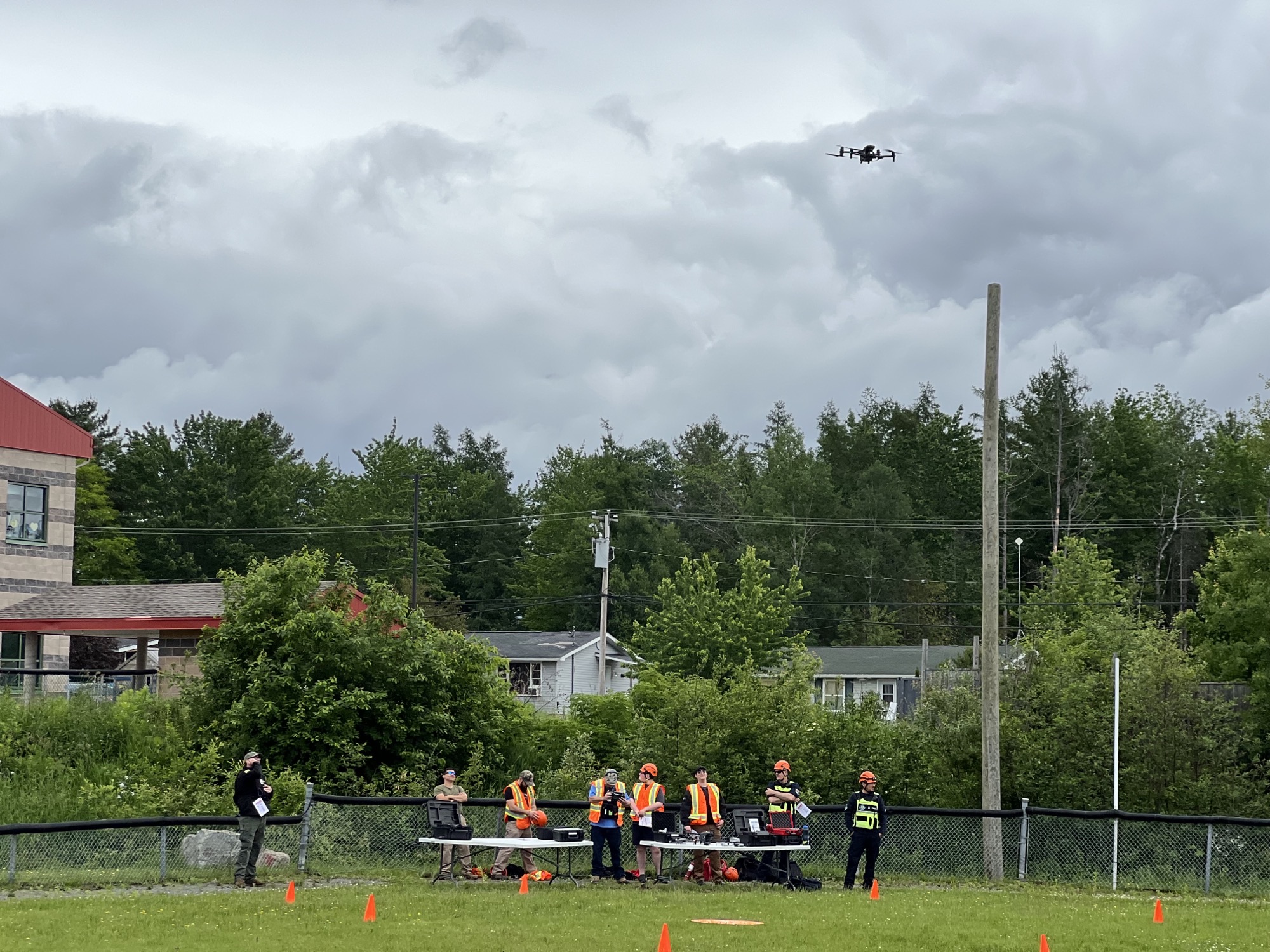
Western Education alum Jacob Taylor.

Western Education alum Jacob Taylor.
Jacob Taylor, spirit name Wasa Nabin Nini, still remembers the “light bulb moment” years ago that sparked an unrelenting desire to strengthen and empower Indigenous communities.
Taylor was in the process of attaining a Bachelor of Health Sciences degree from Western University and had just learned of the United Nations Declaration on the Rights of Indigenous Peoples (UNDRIP), a resolution of the UN General Assembly detailing the rights of Indigenous peoples in international law and policy.
UNDRIP, combined with his program’s teachings on the social determinants of health, gave Taylor new perspective on his background, heritage and lineage as a band member of Curve Lake First Nation.
At the time, Taylor was also volunteering with Western’s Indigenous Student Centre and the N’Amerind Friendship Centre in London, hoping to gather extracurriculars for a planned application to medical school, until he decided to change course.
“All of those volunteer positions immersed me more into the community and into the culture. As I was pursuing the policy lens, I was really interested in how legislation such as the Indian Act was impacting our population’s wellbeing,” Taylor said.
“I really started pursuing that as a pathway.”
In 2010, he graduated from the Faculty of Health Sciences and began working for the Indigenous Student Centre as a youth outreach coordinator, where he visited First Nation Communities to recruit potential students.
It was around this time when Taylor learned about a Master of Education degree in Educational Studies that was being offered at the Faculty of Education through a program called Leadership in Aboriginal Education.
The program was designed by Professor Emerita Dr. Rebecca Coulter, who was the founding Director of Indigenous Education at the Faculty.
“I was pretty interested in it, so I applied,” Taylor said.
The program Taylor enrolled in ran from 2011 to 2013 and was offered in partnership with the Kettle and Stony Point First Nation.
Through it, Taylor learned more about how Indigenous communities and populations are impacted by government policy. He also gathered several principles that would guide his path in the years to come, such as decolonization, empowering communities, data sovereignty and The Four Rs of Indigenous Education — Respect, Relevance, Reciprocity and Responsibility.
Taylor is still in touch with his fellow students from the program.
“I think it’s really important that Western offers these cohort-oriented opportunities for Indigenous student learners because we’re community people. We just function better as a group” Taylor added.
“Having this incorporated worldview from our perspective brought into the curriculum and into the programming was really important in my development to help me get through and have a greater understanding of my own Indigeneity.”

With a master’s degree now under his belt, Taylor continued working his way up in the recruitment field at various schools until he was hired by an oil company to provide help on energy projects impacting Indigenous communities in Alberta.
“I felt like my morals were being betrayed working in the oil sector, so then I decided to move on from there and start my own company,” Taylor said.
Taylor went back to school and earned an entrepreneurship certificate through a program that was offered in partnership with Waubetek Business Development Corporation.
Soon after, in 2014, Taylor linked up with former recruitment colleagues to create Pontiac Group Inc., a consultancy firm that worked to steer a wide range of Indigenous business development initiatives. Taylor served as CEO.
“We were instrumental particularly in helping First Nation communities enter the cannabis industry,” Taylor said.
Taylor’s next move would be guided by a problem he observed throughout Nishnawbe Aski Nation, one of Pontiac Group’s clients.
Nishnawbe Aski Nation is a political territorial organization representing 49 First Nation communities in northern Ontario. More than half of those communities are only accessible by plane year-round.
“While I was working in those communities, we saw the extreme logistical challenges that they faced — the cost of bringing food in, the timeliness of medical equipment, getting nurses and doctors to come into those communities, having good internet connectivity for telemedicine,” Taylor said.
In 2016, Taylor learned those challenges can carry fatal consequences. That year, Norman Shewaybick walked for more than 1,000 kilometres along harsh winter roads in northern Ontario dragging an oxygen tank to carry out an awareness campaign surrounding the events of his late wife's passing.
Shewaybick’s wife had died when the oxygen supply ran out at a nursing station in Webequie First Nation, one of the communities represented by Nishnwabe Aski Nation. A snowstorm at the time meant a fresh oxygen tank couldn’t be delivered by air.
“The Deputy Grand Chief I was working for at the time was devastated by this story and asked me to figure out an answer,” Taylor said.
“And then, one Sunday, we saw on Business News Network a drone company advertising its services for delivery technology and we thought that’s the answer, that’s what can do it.”
It’s 2019 and Pontiac Group is finding success partnering with a drone company to deliver essential goods in Moose Cree First Nation.
The following year, a pandemic is declared, and Pontiac Group worked with Health Canada and Indigenous Services Canada to carry out drone deliveries of COVID-19 test samples, and later vaccines, for Beausoleil First Nation and the Chippewas of Georgina Island.
However, Taylor wasn’t in the pilot’s seat just yet and found himself unsatisfied with how business was being conducted.
“Not enough principles I had learned in my undergrad and my master’s, particularly my master’s, were being effected in the project,” Taylor told Western Education.
In 2021, Pontiac Group shut down, and Taylor began using the experiences he gained from the successful business venture to launch his next company, Indigenous Aerospace.
Indigenous Aerospace, where Taylor serves as CEO, partners with drone company Volatus Aerospace to help source funding, training and technology for First Nation drone operations.
The goal is to empower Indigenous people with drone technology to improve the quality of life in their communities and beyond.
“Indigenous Aerospace works in the full spectrum of drone provisions, not just delivery,” Taylor said.
“We have high school and elementary school programming to encourage students into STEM learning — help them understand aerospace science, how drones work, how machine learning works — this is really important for the critical capacity development of the future, but also now as a retention tool.”
Indigenous Aerospace also provides multi-day workshops for aspiring drone operators and offers training for search and rescue applications with drone technology.
“We’ve helped all sorts of individuals. We’ve trained Indigenous real estate agents to fly drones to better market the properties they’re selling, we’ve trained Indigenous land managers to better look over the assets, the infrastructure and the land planning within their community context,” Taylor said.
“When everyone’s going through the program, they’re not really sure what the applicability is to their life, but as soon as they get into the program and see it, then it really clicks.”

Taylor says there are also applications available for land claims being carried out by Indigenous communities, which can digitize the process to better represent how landscapes have been impacted over time.
He hopes the technology will lead to new forms of reconciliation that were not previously considered.
“There was no treaty signed for the sky, and the air space in the United States and Canada is a huge asset for countries … we’ve been largely left out of that space and there needs to be something done about that to further our inclusion,” Taylor added.
As for the future of Indigenous Aerospace, Taylor wants drone technology to facilitate the delivery of cargo and goods to Indigenous communities, helping combat the high grocery prices and untimely deliveries remote communities contend with.
Part of what’s required for that is an update to Canada’s safety regulations for beyond visual line-of-sight operations, allowing for drones to fly further and with less staffing than currently permitted.
The Government of Canada announced a proposed set of new rules for drones in June.
Taylor also wants communities to be self-sufficient and fully equipped to handle their own drone operations, thanks to training from Indigenous Aerospace.
“We want to make it more of an economic development for them in that it’s employing people and making profits for the bands, but it’s also bringing these goods into the community that increases everybody else’s wellbeing,” Taylor added.
As for himself, Taylor still has academic ambitions and was recently recognized by Western Health Sciences as the 2021 recipient of the faculty’s Young Alumni Award.
Taylor is also on track to receive a PhD in Indigenous Health Sciences at the University of North Dakota, a program he learned about from a fellow Western alum.
“I can’t say enough about how much my education at Western transformed my life,” Taylor added.